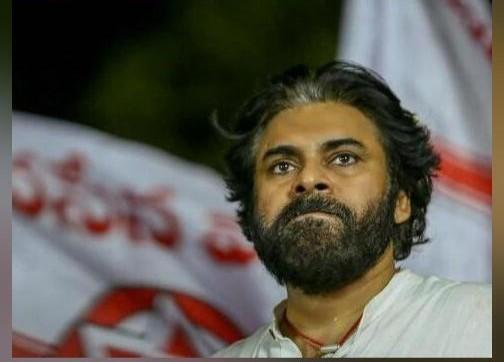
Like PM, Kalyan switches to English while speaking on J&K attack
In a shocking turn of events, Andhra Pradesh Deputy CM Pawan Kalyan stunned his audience by switching from Telugu to English during a mid-speech while talking about the recent terror attack in Jammu and Kashmir’s Pahalgam. This unusual move has sparked a flurry of reactions from the public, with many praising the bold move.
The incident occurred during a public gathering where Kalyan was speaking about the attack, which left several people injured and claimed the lives of many. As he began to speak, he was speaking in Telugu, but suddenly switched to English, saying, “The attack has been one of the darkest days in entire country.” This sudden shift from the native language has left many wondering about the significance of this move.
Interestingly, this is not the first time a prominent leader has switched languages in response to a significant event. In a similar move, Prime Minister Narendra Modi switched from Hindi to English during a recent speech, sending a strong message about India’s unwavering fight against terrorism. The PM’s speech was a response to the Pahalgam attack, which has raised concerns about the country’s security and the government’s response to such incidents.
Kalyan’s decision to switch to English is seen as a bold move, especially considering the significance of language in Indian politics. In a country with 22 officially recognized languages, language can often be a sensitive topic, with some regions and communities having strong affiliations to their native language. By switching to English, Kalyan may have been trying to send a message of unity and national solidarity, transcending regional and linguistic barriers.
The Pahalgam attack has sent shockwaves across the country, with many calling for stronger measures to combat terrorism. The attack has also raised questions about the government’s response to such incidents, with some critics calling for a more robust and proactive approach to counter-terrorism.
In the wake of the attack, Kalyan’s speech has been seen as a bold attempt to unite the nation against this common enemy. By switching to English, he may have been trying to emphasize the gravity of the situation and the need for a unified response. The move has also been seen as a nod to the PM’s earlier speech, where he also switched to English to send a strong message.
However, not everyone has reacted positively to Kalyan’s move. Some have criticized the decision, arguing that it is an attempt to appease a certain section of the population and undermine the importance of regional languages. Others have seen the move as a sign of linguistic imperialism, where English is seen as a more powerful and superior language.
Despite the controversy, Kalyan’s decision to switch to English has sparked a wider conversation about language and national identity in India. As the country grapples with the challenges of terrorism and national security, the role of language in shaping our understanding of ourselves and our place in the world has taken on a new significance.
In conclusion, Kalyan’s decision to switch to English during his speech on the J&K attack is a bold move that has sparked a flurry of reactions. While some have praised the move, others have criticized it, arguing that it undermines the importance of regional languages. As the country continues to grapple with the challenges of terrorism and national security, the role of language in shaping our understanding of ourselves and our place in the world will only become more important.
Source: https://youtu.be/hl6_hZOnkFA






